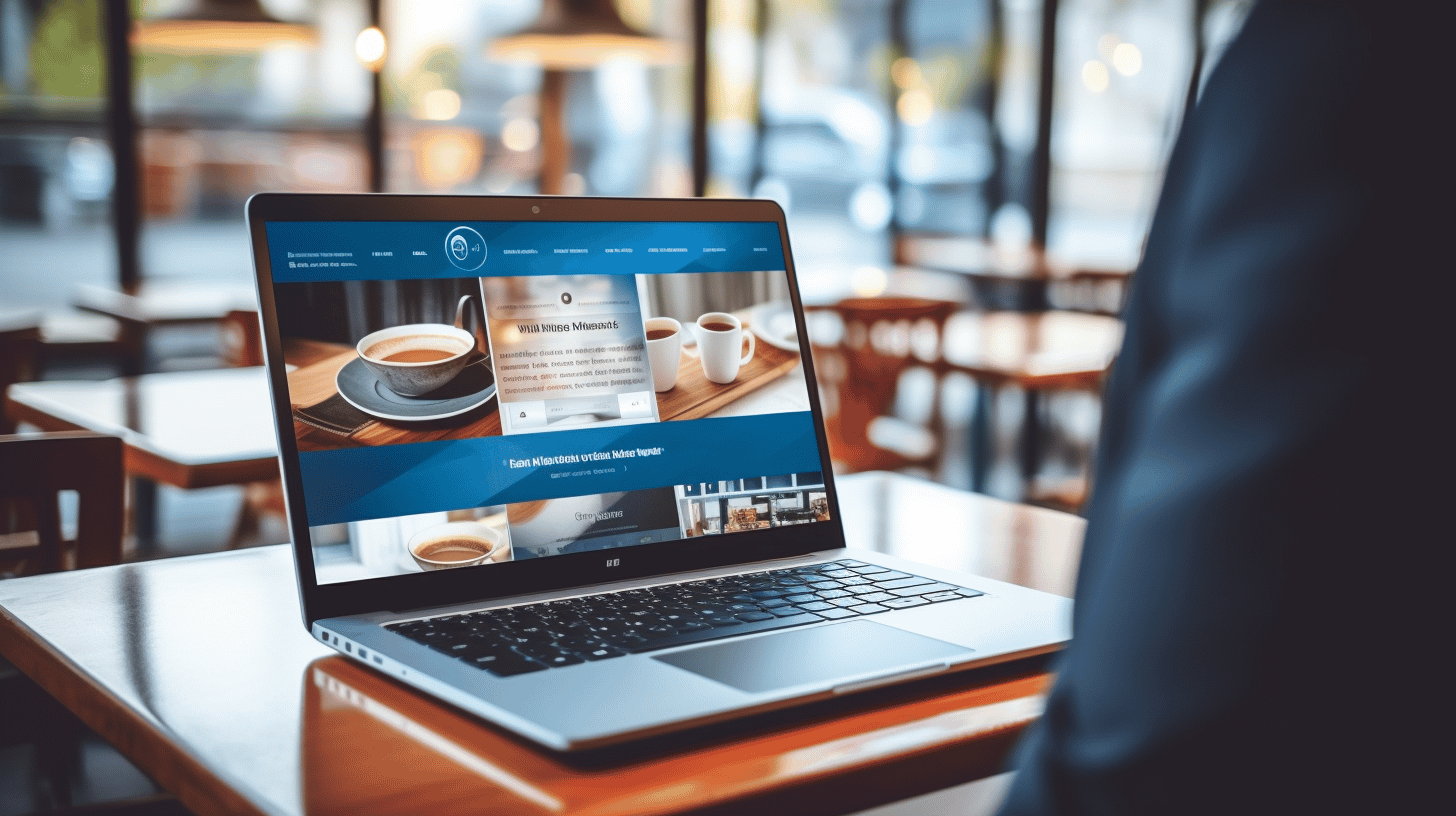Having a well-maintained website is crucial for any business or organization in today’s digital landscape. It serves as a valuable tool to attract and engage customers, build brand credibility, and drive conversions. However, simply creating a website is not enough. It requires regular updates and maintenance to ensure optimal performance and provide an excellent user experience.
In this article, we will explore the art of website maintenance and discuss key updates that are vital for keeping your website running smoothly. From security patches and software updates to content enhancements and SEO audits, we will cover the best practices that will help your website thrive in the ever-changing online environment.
So, whether you’re a business owner, web developer, or digital marketer, buckle up because we’re about to dive into the world of website maintenance and equip you with the knowledge you need to elevate your online presence.
Let’s get started! 🚀
Importance of Regular Website Maintenance
🔧 Is your website performing at its peak? Regular website maintenance is crucial for the smooth functioning and success of your online presence. Many website owners underestimate the importance of ongoing maintenance, but neglecting it can lead to costly consequences like security breaches, decreased performance, and lost opportunities. In this section, we’ll explore the reasons why regular website maintenance should be a priority for every website owner.
- Improved Security: Website security should be a top priority. Hackers and malicious bots are constantly evolving, finding new ways to exploit vulnerabilities in websites. Regular maintenance ensures that your website is up to date with the latest security patches, protecting it from potential threats. By keeping your website secure, you safeguard your data and your visitors’ information, building trust and confidence in your brand.
- Optimized Performance: A slow-loading website frustrates visitors and can lead to high bounce rates. Regular maintenance can help optimize your website’s performance by improving page load times, fixing broken links, and optimizing images and code. A well-performing website not only provides a better user experience but also improves your search engine rankings, driving more organic traffic to your site.
- Improved User Experience: User experience plays a crucial role in the success of your website. Regular maintenance allows you to identify and fix any usability issues, ensuring that visitors can easily navigate and engage with your site. By providing a seamless and intuitive user experience, you increase the chances of visitors converting into customers or taking the desired actions on your website.
- Backup and Recovery: Accidents happen, and websites can sometimes go down unexpectedly. Regular maintenance includes backing up your website and its data, enabling you to recover quickly in case of any issues. Having a recent backup gives you peace of mind knowing that your data is secure and that you can restore your website to its previous state with minimum downtime.
- Stay Ahead of the Competition: In today’s digital landscape, competition is fierce. Regular website maintenance allows you to stay ahead by implementing the latest features, technologies, and design trends. It gives you the opportunity to update your content, add new functionalities, and improve the overall look and feel of your website. By staying up to date, you show your visitors that you are relevant and committed to delivering the best possible online experience.
💡 Do you want to ensure that your website is performing at its best? Consider the services of Peak Performance WordPress Maintenance. With their expertise in website maintenance, they can help you keep your website secure, optimized, and up to date, allowing you to focus on what you do best – running your business. Don’t neglect the importance of regular website maintenance. Invest in it today and reap the benefits of a well-maintained online presence.
Best Practices for Website Maintenance
As a website owner, ensuring the smooth operation and optimal performance of your website is crucial. Regular website maintenance is key to keeping your site secure, up-to-date, and user-friendly. In this article, we will discuss some best practices for website maintenance to help you maximize the functionality and longevity of your website.
Sign Up For a Support and Maintenance Plan
Managing a website can be a time-consuming task, especially if you have limited technical knowledge. Signing up for a support and maintenance plan can take the burden off your shoulders and provide you with peace of mind. With a dedicated support team at your disposal, you can rest assured that any issues or updates will be taken care of promptly. Plus, many plans offer additional benefits such as regular backups, security monitoring, and performance optimization.
Choosing the Right CMS Platforms
One of the first decisions you’ll make when building a website is choosing the right Content Management System (CMS) platform. The CMS platform you choose will have a significant impact on the ease of maintenance and future scalability of your website. Top-rated CMS platforms including WordPress, Webflow, and Shopify offer user-friendly interfaces, a wide range of customizable themes and plugins, and regular updates to keep your website secure and up-to-date.
Regular Backups, Disaster Recovery, and Security Updates
Regularly backing up your website is essential to protect your data and minimize downtime in case of any unforeseen events such as server crashes or hacking attempts. In addition to backups, implementing a disaster recovery plan is crucial to quickly recover from any website-related emergencies. Furthermore, staying on top of security updates is essential to safeguard your website from potential vulnerabilities.
Optimizing Website for Better User Experience and SEO
A well-maintained website not only performs better but also enhances the user experience and improves search engine rankings. Some key aspects to consider in terms of website optimization include:
- Optimizing page load speed: A slow-loading website can frustrate visitors and negatively impact your search engine rankings. Minimize image file sizes, use caching techniques, and leverage content delivery networks (CDNs) to improve website speed.
- Mobile responsiveness: With more people accessing the internet on mobile devices, it’s essential to ensure your website is mobile-friendly and responsive across different screen sizes.
- SEO-friendly structure: Implementing proper metadata, using descriptive URLs, and optimizing heading tags and image alt text can significantly improve your website’s visibility in search engine results.
Content Updates for Audience Engagement
Regularly updating your website’s content is crucial for keeping your audience engaged and coming back for more. Fresh content not only provides value to your visitors but also helps improve your website’s search engine rankings. Consider adding a blog section, publishing new articles or blog posts, and refreshing existing content to provide your audience with relevant and up-to-date information.
Software, Plugins, and Theme Updates
Many websites rely on various software, plugins, and themes to enhance their functionality and design. It’s crucial to regularly update these components to ensure compatibility, security, and performance. Outdated software, plugins, or themes can leave your website vulnerable to security breaches or functional issues. Stay proactive by regularly checking for updates and applying them promptly.
Regular Checks for Broken Links and SEO Audits
Broken links can negatively impact user experience and SEO. Regularly checking your website for broken links and fixing them promptly is essential. In addition to broken links, conducting regular SEO audits can help identify areas for improvement, such as keyword optimization, internal linking, and meta tags.
By following these best practices for website maintenance, you’ll not only ensure the smooth operation of your website but also provide a seamless user experience and improve your website’s visibility in search engine results. Remember, website maintenance is an ongoing effort, so be proactive and make it part of your regular routine.
Now that you understand the importance of website maintenance, let’s dive into actionable tips to improve your WordPress website performance and optimize it for success. Improve Your WordPress Performance
Ensuring Website Security
🔐 The security of a website is of utmost importance in today’s digital landscape. With cyber threats becoming increasingly sophisticated, it is crucial for businesses and individuals to take proactive measures to protect their online assets. One such measure is ensuring the security of your website. By following a few key steps, you can significantly reduce the risk of unauthorized access and potential data breaches. In this section, we will explore some essential aspects of website security and how you can enhance it.
Regular Software Updates
One of the most effective ways to bolster your website’s security is by regularly updating your software. This includes not only the content management system (CMS) you’re using, such as WordPress, but also all the plugins and themes installed on your website. Why is this important? Let’s take a look:
- ✅ Software updates often contain crucial security patches that address vulnerabilities discovered by developers or reported by the WordPress community.
- ✅ Cybercriminals are constantly evolving their tactics, and outdated software can become an easy target for exploitation.
- ✅ By running the latest versions of your CMS, plugins, and themes, you can benefit from the latest security features, bug fixes, and performance improvements.
Implementing Latest Security Patches
In addition to keeping your software up to date, it’s equally important to implement the latest security patches. These patches are released by software developers to address specific security issues that may arise. Here’s why you should make it a priority to implement these patches promptly:
- ✅ Security patches often address vulnerabilities that could potentially allow unauthorized access to sensitive information or compromise the integrity of your website.
- ✅ Cyber threats are constantly evolving, and developers are continually working to stay one step ahead. By implementing security patches, you’re fortifying your website against the latest threats.
- ✅ Neglecting to implement security patches can leave your website vulnerable to exploitation, potentially leading to reputation damage, loss of customer trust, and financial consequences.
Keeping CMS, Plugins, and Themes Up-to-date
In addition to regular software updates and implementing security patches, it’s crucial to keep your CMS, plugins, and themes up to date. Here’s why:
- ✅ Updated CMS, plugins, and themes often come with new features, improved functionality, and enhanced security measures, providing a better user experience.
- ✅ Developers frequently release updates to address known security vulnerabilities or bugs in their software. By keeping everything up to date, you can ensure that your website is as secure as possible.
- ✅ Outdated CMS, plugins, and themes can conflict with each other and potentially introduce security loopholes or performance issues.
By following these best practices and ensuring regular updates, you can significantly enhance the security of your website. Remember, your website’s security is an ongoing process, and it requires continuous attention and proactive measures. Stay vigilant, stay updated, and protect your online presence.
🔒 Enhance Website Security for more information on how to safeguard your website from potential threats.
Conclusion
Regular website maintenance is essential for ensuring optimal performance, security, and user experience. Neglecting website updates can lead to a variety of issues, including vulnerability to cyber threats, poor site performance, and a decline in search engine rankings. By following best practices for website maintenance, such as signing up for a support and maintenance plan, choosing the right CMS platforms, and regularly updating software, plugins, and themes, businesses can ensure their websites are running smoothly and effectively.
At Managed-WP™, we understand the importance of website maintenance and offer a comprehensive range of services to simplify the process. Our premium managed WordPress cloud hosting platform provides expert 24/7/365 WordPress support, WordPress NOC, backup management, patch management, and proactive monitoring. With Managed-WP™, you can focus on your digital experiences while we handle the technical aspects of your website. Visit our website at managed-wp.com to learn more and take the first step towards maintaining a high-performing website. 🚀💻🔒
Frequently Asked Questions
- Why is website maintenance important for optimal performance?
Website maintenance is important for optimal performance because it ensures that your site is up-to-date, secure, and functioning properly. Regular updates and maintenance help prevent issues such as security breaches, slow loading speed, and broken links.
- What are some key updates that need to be done for website maintenance?
Some key updates for website maintenance include regularly updating plugins, themes, and the WordPress core, optimizing images and database, checking for broken links, monitoring website speed, and implementing security measures like backups and malware scanning.
- How often should I perform website maintenance?
Website maintenance should be performed regularly, ideally on a weekly or monthly basis. However, the frequency can depend on the size and complexity of your website, as well as the volume of content and traffic it receives.
- Can I do website maintenance myself or should I hire professionals?
You can perform basic website maintenance tasks yourself, such as updating plugins and checking for broken links. However, for more advanced tasks like security audits, database optimization, or troubleshooting technical issues, it is recommended to hire professionals for optimal results.
- What are the consequences of neglecting website maintenance?
Neglecting website maintenance can lead to several consequences, including security vulnerabilities, decreased website performance, higher bounce rates, loss of search engine rankings, broken functionality, and a negative user experience. It’s important to prioritize regular maintenance to avoid these issues.



















